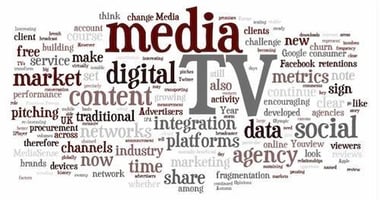Below are the October articles of interest from key trade publications, with excerpts highlighting...
Decideware’s “Agency Management Big 8” - March 2017
Below are the March articles of interest from key trade publications. This month's selection includes articles on how to build a better agency relationship, the importance of a client/agency contract, as well as the increasing trend in global consultancies buying up agencies and reshaping the brand marketing world. We hope that you find this month's selections informative and valuable.
1) How to Build a Better Agency Relationship
From a lack of trust to media channel frustrations, tensions between clients and their agencies might be at an all-time high. However, it's well-known that a happy and healthy relationship will facilitate more business success. In this presentation, we'll cover the ways clients can build a stronger relationship with their agencies, creating a win-win situation.
2) Agencies should worry as ISBA gets serious about 'vicious circle of mistrust'
Media agencies had better watch out because advertisers are getting serious about the ad industry's lack of transparency, judging by the mood at ISBA's conference....
And it was certainly a big deal for the UK’s largest advertiser to declare on-stage that "there’s a vicious circle of mistrust that exists" between media agencies and their clients, as Andrew Mortimer, the director of media at Sky, put it during a panel debate on transparency.
3) P&G's Pritchard Blasts Objections to His Digital Demands as 'Head Fakes'
He dismissed arguments that procurement is making egregious financial demands. "Give me a break," he said. "Procurement, or Purchases at P&G, is a valued resource and expert partner on supply chains that we rely upon to help us, the marketers, to make decisions on fees, work scope, payment terms and contract terms. In the end, procurement is not the problem or an excuse. The buck stops with the marketers who make the decisions."
Media-agency relations have become frayed by "too much complexity, murkiness and waste in the supply chain that all of us have had a hand in creating," Mr. Pritchard said. Simplifying things, he said, will help "will help us get back to the true partnership we had with agencies in the past" with both sides working to create value for themselves "and most important – for consumers."
4) The importance of a client/agency contract
http://www.ana.net/miccontent/showvideo/id/v-moc-jan17-reedsmith?st3=170310anaSB
The contract defines the commercial relationship between advertiser and agency. In this video, learn why agencies have legal fiduciary obligations to advertisers when contracted to act as their agents.
5) Global Consultancies Are Buying Up Agencies and Reshaping the Brand Marketing World
Accenture, Deloitte, IBM, KPMG, McKinsey and PricewaterhouseCoopers rank among the most aggressive players, and Heat believed that a union with such a firm offered clear advantages.
As digital ad spending continues to grow—eMarketer projects a rise to nearly $305 billion in 2019 from $230 billion this year—industry watchers predict the trend of consultancies buying up agencies will only accelerate.
6) Ad Agencies Are Building Out Their Own Consultancies to Better Compete for Digital Dollars
As consulting and IT firms continue to acquire agencies and ad marketing services, traditional advertising companies have begun to fight back by launching practices to provide business-transformation counsel to help clients more effectively compete for customer dollars in the digital age.
Such an undertaking “isn’t just communications,” he says. “It’s a shift in how you think about data, a shift in how you go to market, a shift in essentially your business model. At its core, your entire value proposition is to help C-suite clients innovate.”
7) Drowning in Deliverables
https://www.mediavillage.com/article/drowning-in-deliverables/
“They had been organized as a typical creative agency, with a talent pool designed to create Big Ideas for a typical mix of SOW deliverables designed to move their clients' brands -- the agency equivalent of a high-class French restaurant with a reputation for quality.
Instead, they found themselves operating more like a McDonald's fast-food operation, flipping 50 deliverables per day to keep the content flowing. Intellectually and creatively, it was not a satisfying exercise, and the total amount of creativity in the mix of work was modest, indeed.”
8) Ad Week: Issues Around Insourcing And Marketers’ Role Fuel Debates
The advertising industry is experiencing a period of huge turbulence that is leading to the questioning of traditional models and marketing roles.
The issue of in-house production units is an especially hot topic after it was revealed the Department of Justice in the U.S. was investigating agencies for alleged collusion between them and their in-house production units.
While in Europe there is no suggestion of criminality when it comes to the activities of in-house production units, there is still great concern over whether it offers independent production companies a level playing field or clients the best deal.



